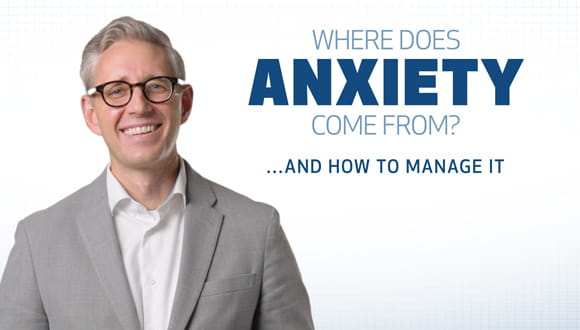Coping With Anxiety: How Do You Know If You're Handling It Well?
March 9, 2022 - Katie McCallumWe all experience anxiety from time to time. As Dr. William Orme, a psychologist at Houston Methodist, puts it in the video above, it's normal to the human experience.
But that doesn't mean that we can simply ignore anxiety — how it's making us feel and how it's affecting our lives.
"It just so happens that, most of the time, the things that matter to us are on the other side of anxiety," says Dr. Orme. "I think of anxiety as getting out of control when it's getting in the way of life."
What is anxiety?
"You can think of anxiety like the body's response to something that the mind is perceiving as threatening," says Dr. Orme.
Anxiety raises the level of alertness in your body, causing:
- Your heart to start pounding
- Your breath to quicken
- Changes in your blood flow
The results are the physical symptoms of anxiety you might already know, including sweating and feeling hyper-alert and even a tingling sensation in your fingers.
"It has a whole cascade of effects on your physical body," adds Dr. Orme.
How to deal with anxiety
When it comes to managing anxiety, it's important to consider whether or not we're handling it well.
But that's somewhat complicated by the fact that, when you're feeling anxious, it can cause:
- Difficulty concentrating
- A reduced ability to organize your thoughts and prioritize tasks
- Fatigue that keeps you from getting things done
"I think about how are we managing the anxiety so it doesn't get in the way of doing the things we want to do that bring meaning to us in life," says Dr. Orme.
When anxiety starts to affect the way you function — from your relationships and social interactions to your diet and exercise — it's time to consider: Is now the time to find help?
Your doctor has many tools at his or her disposal to help diagnose and address anxiety. He or she can refer you to a behavioral therapy specialist, such as a therapist or psychologist, who can help you manage your anxiety.


